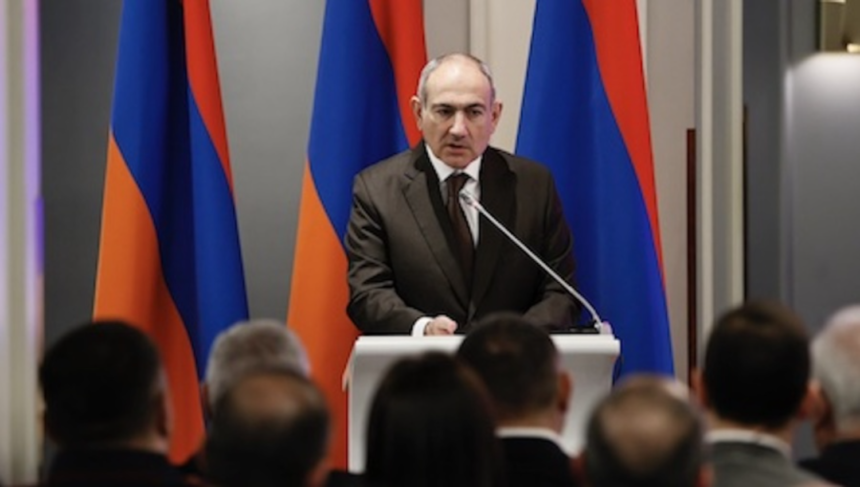Armenia is pivoting away from Russia, marking a historic shift in its foreign policy amid deteriorating relations with Moscow. This strategic realignment is underscored by Armenia’s push to join the European Union and its recent strategic partnership with the United States, reports The Geopost.
Armenia’s EU Membership Aspiration
Armenia’s Parliament, dominated by Prime Minister Nikol Pashinyan’s Civil Contract Party, is set to vote on initiating the EU membership process. This follows the government’s approval of the initiative, supported by 60,000 Armenian citizens. On January 14, Armenia also signed a strategic partnership agreement with the United States.
Pashinyan has announced that a roadmap for Armenia’s EU membership will be negotiated with Brussels. He is the first Armenian leader to publicly state aspirations for EU membership, a vision he introduced in October 2023 during a European Parliament address.
Correcting a Strategic Misstep
Armenia’s EU bid seeks to rectify a perceived strategic mistake made in 2013 when the country abandoned EU Association Agreement talks to join Russia’s Eurasian Economic Union (EAEU). The decision, motivated by hopes of securing Russian military support amid the Nagorno-Karabakh conflict, has since backfired.
Russia’s arms supplies to Azerbaijan, totaling billions of dollars, have been used in conflicts against Armenian forces. During the 2020 Nagorno-Karabakh war and Azerbaijan’s 2023 offensive, Russia failed to protect Armenian interests despite its obligations under the Collective Security Treaty Organization (CSTO).
Western Support Amid Russian Pressure
The EU has responded positively to Armenia’s pivot. EU Commissioner for Enlargement Marta Kos has pledged to review Armenia’s application and plans to visit Yerevan in 2025 to coordinate next steps. The EU’s observer mission on the Armenia-Azerbaijan border has also provided stabilizing support, backed by €10 million from the European Peace Facility.
However, Russia has begun leveraging its economic influence, warning of higher energy prices and potential export losses should Armenia leave the EAEU. Russian Deputy Prime Minister Alexei Overchuk has cautioned that Armenia’s exports to Russia could drop by 70-80%.
Geopolitical Challenges Ahead
Armenia also faces military threats linked to Russian-backed Azerbaijan. Moscow and Baku are pushing for the establishment of the Zangezur Corridor, a transit route through Armenian territory. Pashinyan’s administration suspects Russia of encouraging Azerbaijani aggression to achieve this goal.
Meanwhile, the Armenian government continues to strengthen ties with Western powers, including the U.S., EU, and France, which support Armenia’s sovereignty and territorial integrity.
Navigating Diplomatic Tensions
Armenia’s Foreign Minister Ararat Mirzoyan is set to hold critical talks with Russian officials in the coming weeks. Russia’s Foreign Minister Sergey Lavrov has hinted at renewed pressure on Armenia to abandon its EU aspirations, reminiscent of the 2013 decision influenced by President Vladimir Putin.
This time, however, the geopolitical landscape has shifted. Russia’s resources are stretched due to the Ukraine war, and Armenia’s growing Western support suggests a more robust resistance to Moscow’s pressure.







